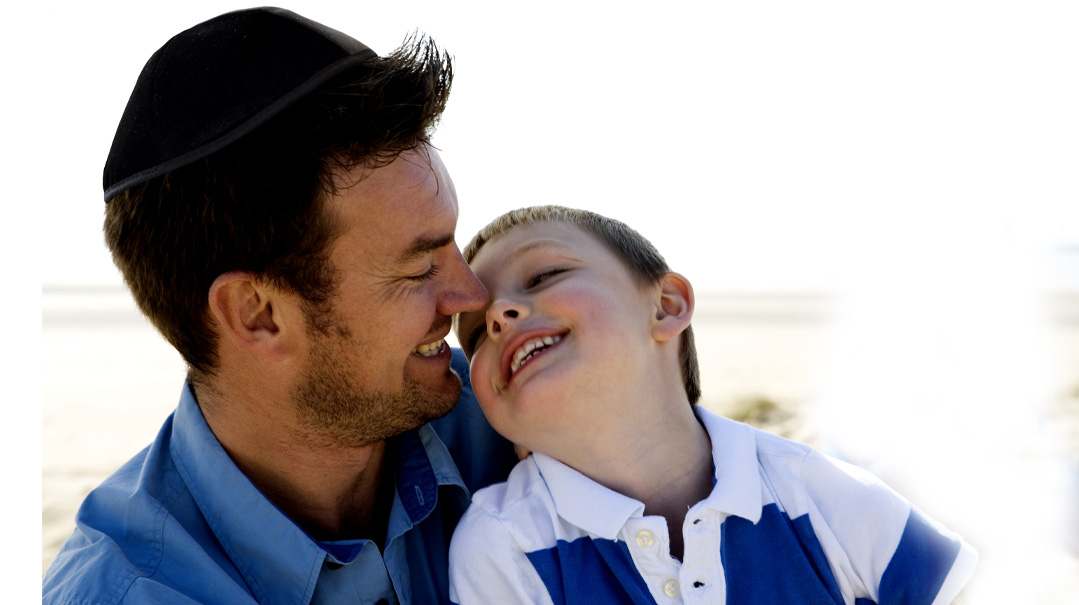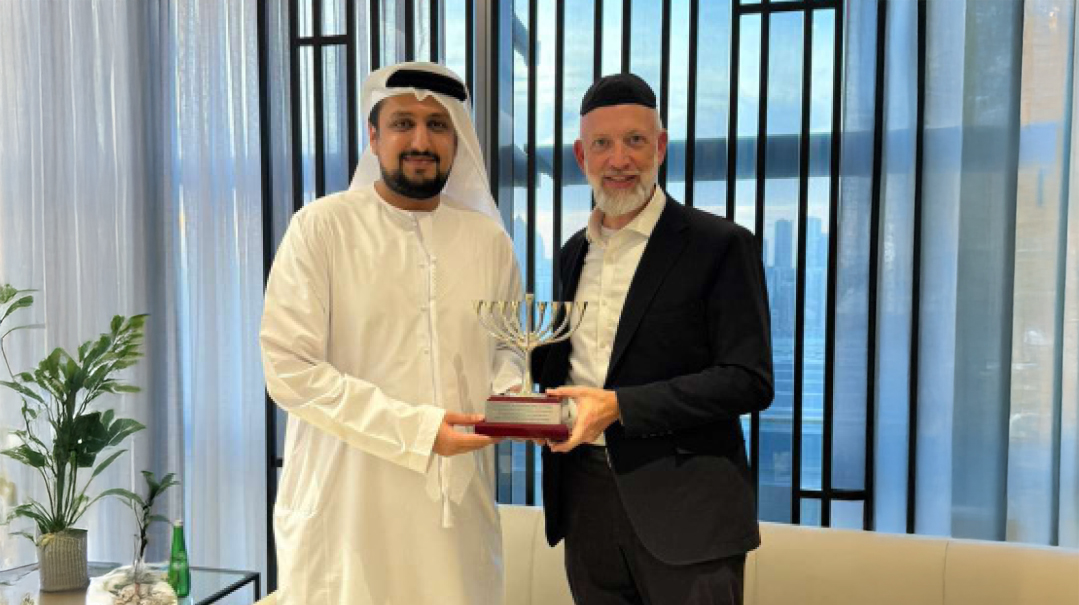Healing from Within
| September 28, 2022Why Jews leave observance, and how we can heal the hurt that causes it

M
oshe was a top learner at BMG and dreamed of becoming a bona fide talmid chacham one day. Then he got married and found himself unraveling mentally and religiously. While he was able to regain some emotional stability with the help of a therapist, his breakdown left him hating Judaism. When he came to our organization, it was a last-ditch effort to salvage some Jewish connection, spurred on by his desperate wife.
Chani, the oldest of 11, comes from a chassidish family in Boro Park, and was a model student and obedient daughter. Her teenage years hit her hard, though, and she found herself in a deep depression. Her short marriage didn’t last. She attempted suicide several times and found herself in a psych ward. By the time she got out, she had lost all connections to Judaism.
Moshe and Chani are just two examples of hundreds of cases that have come our way in the last seven years. I’m not a mental health professional, but my work as a kiruv professional has led me to discover that the two are sometimes inextricably intertwined.
My own teshuvah story has inspired my passion for kiruv. When I was eight years old, a father in my school went crazy and killed both of his children and himself. This tragedy made me question my purpose in life and eventually led me to Yiddishkeit. After becoming frum, I was privileged to influence my entire family to join me. After that, I set myself a goal to bring the beauty of Judaism to all secular Jews.
While working in traditional kiruv organizations for years, I discovered that most non-frum Jews have very negative perceptions of Orthodox Jews, and these prior beliefs prevent them from exploring Torah learning and observance. It seemed to me that the missing link in the kiruv movement was to improve people’s associations with Orthodoxy. I just didn’t know how to deliver accurate information at first.
In 2005, I noticed that a new website called YouTube was becoming popular and that you could “Broadcast Yourself.” That was a game changer. I realized that instead of waiting for anti-Orthodox media outlets to share their negative perceptions of the frum world, I could “broadcast” my life, and show the joy and meaning in my misunderstood community. The first popular YouTube show I heard of was called LonelyGirl15, about a lonely girl who was 15. Since I was Jewish and lived in the city, I became Jew in the City.
Since our founding in 2007, JITC has inspired countless secular Jews to become observant. But then something unexpected happened: we accidentally attracted the off-the-derech (OTD) community. While the initial commenters were angry and accusatory, in 2014, an ex-ultra-chassidish couple approached me at a kiruv event I was speaking at and asked for help. They said they couldn’t remain where they were religiously, but wanted to stay frum. This led to us launch the Makom branch of our organization. Since 2015, we have worked with hundreds of former and questioning frum Jews, through monthly events, follow-ups, shiurim, Shabbos placements, shabbatons, and referrals to therapists.
From the very beginning, most of our members reported having been abused in one way or another. This made me assume that it was abuse that causes people to go OTD. But I’ve since realized that while trauma is certainly a contributing factor, that alone doesn’t seem to push people out. The head of an at-risk organization told me the common thread he sees is that his participants are highly sensitive people. Most of our members are as well. That also seems to be a contributing factor. But the most universal issue we see for why people leave Judaism (though obviously I haven’t met every single person who’s left observance) is insecure attachment due to childhood emotional neglect.
Secure attachment occurs when childhood emotional needs are met. In a frightening statistic, less than half the population reports secure attachment feelings. While you’re likely familiar with “neglect” — children who aren’t fed, clothed or washed properly, childhood emotional neglect is less glaring. Parents who love their children dearly and have tried their best can still inadvertently be emotionally neglecting their children. While the phenomenon exists across the board, a society like ours, which has experienced so much national trauma, surely has parents who were either not alive for their children or who shut down emotionally from PTSD (or who were raised by such parents).
Emotionally neglected children may not have had a safe space to voice their true opinions, a sounding board to process their emotions, the sense they are unconditionally loved and physically held , the knowledge that someone will always be there for them, that they are cherished. If some or all of these basic needs were unmet, the child will likely grow up feeling empty, rudderless, and there’s a good chance she will feel like she doesn’t belong in her family, body, and/or community. That, plus trauma, plus being a highly sensitive person, seems to be the combination that pushes people out of observance.
If you experienced childhood emotional neglect, this topic will make you emotional. You may want to shut it down. But identifying a problem is the beginning to fixing it. If you have children who are no longer observant, this topic may also make you feel judged, but all parents make mistakes. We all emotionally neglect our children to some degree. If you did it to a larger degree, it’s because it was done to you, not because you’re a bad person. And there is a way to heal the hurt.
We discovered childhood emotional neglect in our members when Makom psychologist Dr. Ben Madsen recommended the book The Emotionally Absent Mother: How to Recognize and Heal the Invisible Effects of Childhood Emotional Neglect by Jasmin Lee Cori for a close friend of mine who’s been dealing with feelings of not belonging in the frum community for years. Identifying many patterns from my friend’s relationship with her parents in the book, as well as patterns from our members, I suggested that our organization start learning it together. This approach has had a profound impact on members who committed to facing and healing this pain. Cori explains that a child’s emotional needs are met through “Good Mother Messages,” which a child needs to hear or experience from an attachment figure — usually a mother or a father — as she grows up.
When our member, Moshe, started learning about childhood emotional neglect, he saw how clearly it fit in with patterns of his childhood, and he began to separate the dysfunction he experienced from Judaism itself. He realized he had been viewing Judaism and G-d through a trauma lens.
Interestingly, Jasmin Lee Cori notes that there are spiritual mothers, but since she’s not Jewish, she doesn’t know about the Shechinah. The Shechinah was especially present in the Midbar, when Bnei Yisrael were leaving Mitzrayim. The Ananei Hakavod both surrounded and protected our fledgling nation, just as a mother surrounds and protects her children. As I was thinking about this archetypal mother messaging, I realized that probably all of the Good Mother Messages can be found in Torah texts. By virtue of being children of G-d, we are supposed to know these truths innately. It is only when a person is unfortunately raised in a dysfunctional home that she may have these messages blocked from her. Here are Cori’s Good Mother Messages, matched with Jewish sources:
- I’m glad that you are here. “You have captured My heart, My sister, My bride.” (G-d speaking to the Jewish People in Shir Hashirim 4:9).
- I see you. “Hashem looks down from heaven; He sees all mankind” (Tehillim 33:13).
“[Hashem] knows the secrets of the heart” (Tehillim 44:22).
- You are special to me. “For G-d chose Yaakov for Himself, Yisrael for His treasure” (Tehillim 135:4).
- I respect you. “Since you are precious in My sight, and honorable, and I have loved you…” (Yeshayahu 43:4).
- I love you. “I have loved you with an everlasting love, therefore I have drawn you with kindness” (Yirmiyahu 31:2).
That love is unconditional — “Even though he has sinned, he is still Yisrael” (Sanhedrin 44a).
- Your needs are important to me. (You can turn to me for help.) “You open Your Hand, and sustain the needs of all living (creatures),” (Tehillim 145:16).
“[Hashem] heals the brokenhearted and binds up their wounds” (Tehillim 147:3).
- I am here for you. “Though my father and mother abandon me, Hashem will take me in.” (Tehillim 27:10).
- You can rest in me. “He will shelter me in His pavilion on an evil day, grant me the protection of His tent, raise me high upon a rock” (Tehillim 27:5).
“G-d is our refuge and strength; an ever-present help in trouble…” (Tehillim 46:2).
- I’ll keep you safe. “I say of Hashem, my refuge and stronghold, my G-d in whom I trust… He will cover you with His pinions; you will find refuge under His wings; His fidelity is an encircling shield.” (Tehillim 91:2-4)
- I delight in you. “Hashem delighted in your ancestors and loved them, and He chose you, their descendants, above all the nations…” (Devarim 10:15).
According to Cori, the way a person heals childhood emotional neglect is by self-parenting. The hurt person needs to find her inner children — the stages of herself who missed Good Mother Messages but are still very much present in her day-to-day life. She then heals them by telling them the Good Mother Messages they never got.
Our member Chani had been in therapy for a decade and had tried many different modalities, but she had never heard of inner-child work. As she began to learn about this topic, she discovered inner children that existed within her and were still hurting. With her therapist, she began to self-parent these children and has found a sense of healing and wholeness she had been missing her entire life.
So how does this apply to the OTD crisis? We can prevent childhood emotional neglect by learning how to be emotionally available for our children. And in terms of those who have already left, our goal should never be “to make someone religious,” but rather to see if our children are in pain. If any of these Good Mother Messages trigger you, they likely trigger your OTD child. If they are triggering to you and/or your child, a qualified therapist can help heal these wounds with inner-child work and self-parenting.
Our members who are doing this work are able to separate feeling voiceless, powerless, and conditionally loved from the beauty that can be found in living a healthy Jewish life. When we can recognize this latent hurt and heal as humans, many people can one day reexamine Judaism from a place of healthiness and wholeness — exactly as it should be.
(Originally featured in Mishpacha, Issue 930)
Oops! We could not locate your form.







